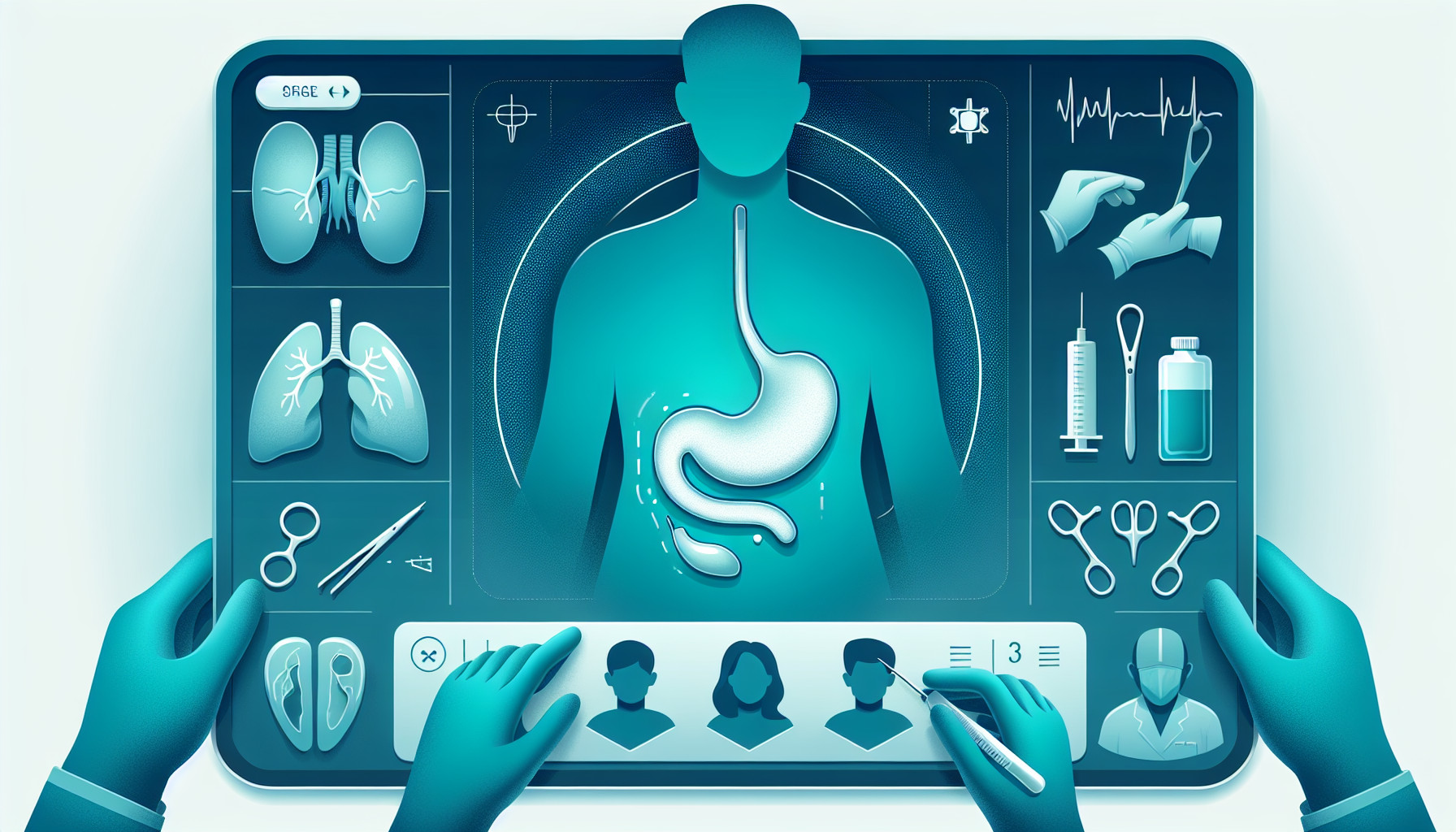Our Summary
This research paper aimed to determine how often patients needed gallbladder removal (cholecystectomy) after undergoing one of three common weight-loss surgeries (bariatric surgeries). The study, conducted at a University Hospital in New York, used a large database to track patients who had either a gastric bypass, sleeve gastrectomy, or adjustable gastric banding procedure between 2004 and 2010. The patients were tracked for at least five years to see if they required a cholecystectomy. The results showed that 6.5% of patients needed a gallbladder removal after gastric banding, 9.7% after gastric bypass, and 10.1% after sleeve gastrectomy. Certain factors increased the risk of needing a cholecystectomy, including age, sex, race, and certain pre-existing health conditions and complications. The researchers concluded that patients should be informed of this risk before having weight-loss surgery, and measures to prevent gallbladder disease should be considered.
FAQs
- What was the purpose of the research study conducted at a University Hospital in New York regarding cholecystectomy?
- What percentage of patients needed a gallbladder removal after undergoing common weight-loss surgeries?
- What factors increased the risk of needing a cholecystectomy after weight-loss surgery according to the research study?
Doctor’s Tip
One helpful tip a doctor might give a patient about cholecystectomy is to follow a low-fat diet post-surgery to help prevent complications and aid in digestion. It is important to gradually reintroduce fats into the diet and avoid high-fat foods that can trigger symptoms. Additionally, staying well-hydrated and maintaining a healthy weight can also help prevent gallbladder issues in the future. Regular exercise and lifestyle changes may also be recommended to improve overall health and reduce the risk of gallbladder disease.
Suitable For
Patients who are typically recommended cholecystectomy include those who have:
- Gallstones causing symptoms such as severe abdominal pain, nausea, vomiting, and jaundice.
- Gallbladder inflammation (cholecystitis) that does not respond to non-surgical treatments.
- Gallbladder polyps that are large or are at risk of being cancerous.
- Biliary dyskinesia, a condition where the gallbladder does not empty properly and causes symptoms such as abdominal pain and bloating.
- Pancreatitis caused by gallstones blocking the pancreatic duct.
- Complications from weight-loss surgeries that increase the risk of gallbladder disease, such as rapid weight loss and changes in bile composition.
- Previous history of gallbladder problems or a family history of gallbladder disease.
It is important for patients to discuss their individual risk factors and symptoms with their healthcare provider to determine if cholecystectomy is the appropriate treatment option.
Timeline
Before cholecystectomy:
- Patient experiences symptoms of gallbladder disease such as abdominal pain, nausea, vomiting, bloating, and indigestion.
- Patient undergoes diagnostic tests such as ultrasound, CT scan, or MRI to confirm the presence of gallstones or other gallbladder issues.
- Patient may be prescribed medication to manage symptoms or prevent complications.
- Patient may be advised to follow a low-fat diet to reduce symptoms.
- Patient may be scheduled for a cholecystectomy if symptoms persist or if complications such as infection or inflammation occur.
After cholecystectomy:
- Patient undergoes surgery to remove the gallbladder either laparoscopically or through open surgery.
- Patient may experience some pain and discomfort after surgery, which can be managed with pain medication.
- Patient may be advised to follow a special diet for a few weeks post-surgery to allow the body to adjust to the absence of the gallbladder.
- Patient may experience changes in bowel habits, such as diarrhea, due to the increased flow of bile into the intestines.
- Patient may gradually resume normal activities and diet as advised by their healthcare provider.
- Patient may experience long-term changes in digestion and may need to make dietary adjustments to manage symptoms such as diarrhea or bloating.
What to Ask Your Doctor
- What is cholecystectomy and why might I need this procedure after weight-loss surgery?
- What are the risks and benefits of undergoing a cholecystectomy?
- Are there any alternative treatments or preventative measures I can take to reduce my risk of needing a cholecystectomy?
- How common is it for patients to require gallbladder removal after weight-loss surgery, and what factors may increase my risk?
- What symptoms should I watch out for that may indicate a problem with my gallbladder after weight-loss surgery?
- How will a cholecystectomy affect my recovery from weight-loss surgery and my overall health in the long term?
- Are there any specific dietary or lifestyle changes I should make to reduce my risk of gallbladder disease after weight-loss surgery?
- Will I need to take any medications or supplements to support my gallbladder health after weight-loss surgery?
- How often should I follow up with you or a specialist to monitor my gallbladder health after weight-loss surgery?
- Are there any additional tests or screenings I should undergo to assess my risk of gallbladder disease before weight-loss surgery?
Reference
Authors: Altieri MS, Yang J, Nie L, Docimo S, Talamini M, Pryor AD. Journal: Surg Obes Relat Dis. 2018 Jul;14(7):992-996. doi: 10.1016/j.soard.2018.03.028. Epub 2018 Mar 30. PMID: 29724681
